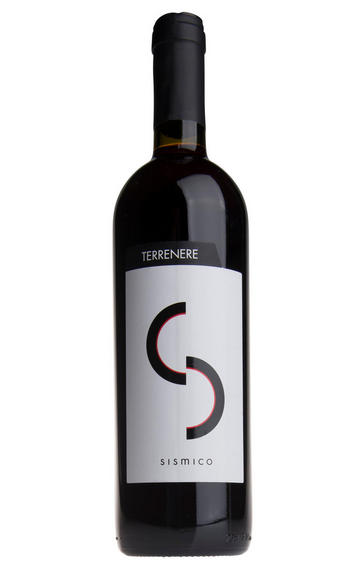
About this WINE
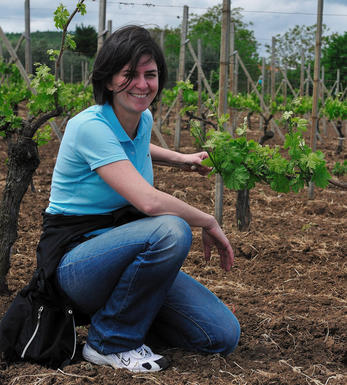
Carbone, Basilicata
Carbone is a relatively new producer of Aglianico del Vulture. Located in Melfi, Basilicata, close to the Vulture volcano, in an ancient cellar hewn out of the black lava rock, the Carbone family first planted Aglianico vines in the 1970s.
Up until vintage 2005 the family sold fruit to the then traditional cantina of Paternoster. From that year on Sara and her brother Luca have bottled their fruit themselves, with Sergio Paternoster as their consultant winemaker. They own 18 hectares, of which 10 are planted in the sooty, potassium rich, black volcanic soils of the Piani dell’Incoronata vineyards at 550 msl and a further 8 on clay, more suitable to the likes of white Fiano.
Vinification takes place in stainless steel, with invecchiamento/elevage in used and new French barrique and tonneaux. Very much benchmark plus expressions of this noble, but relatively unknown grape variety, the so-called ‘Nebbiolo of the South’, the family produce an earlier drinking Aglianico del Vulture called "400 Some", after the 400 mules belonging to King Carlo d’Angio of Southern Italy. While their "Stupor Mundi" Aglianico del Vulture celebrates the Holy Roman Emperor Frederick II (1194-1250) and stems from the Carbone’s old Piani dell’Incoronata vineyard close to Melfi, with its historic castello.
Fruit of the chocolate brown volcanic soils that surround Monte Vulture, this is full-bodied Aglianico and white Fiano grapes at its very best!
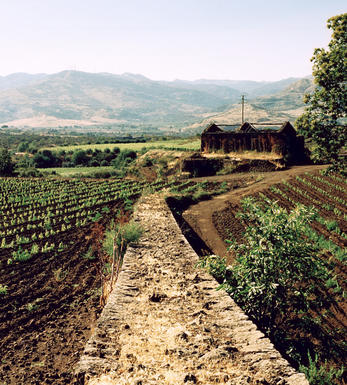
Basilicata
Basilicata is a region in the south of Italy, bordering on Campania to the west, Apulia (Puglia) to the east, Calabria to the south, it has one short coastline on the Tyrrhenian Sea and another of the Gulf of Taranto to the south-east.
Basilicata, also known as Lucania, is an often overlooked wine region of parched hills and isolated mountains that can be bitterly cold for its southerly location. Yet this cool mountainous climate allows grapes to preserve vivid, fresh aromas and flavours. Basilicata has only one DOC in Aglianico del Vulture, but the quality of it is such that it ranks among the best known indigenous Italian reds.
Aglianico, the name of the grape, is a corruption of the word "Hellenic/ Ellenico" or Greek. The vines was originally planted by the Greeks when they settled there in pre-Roman times, when southern Italy was a Greek colony known as Magna Graecia or Oenotria. The Greeks planted many vines in the zones around the Mount Volture , which is considered the prime spot and stronghold of Aglianico today.
Aglianico can produce very long-lived wines of intensity and finesse. In the past young Aglianico wines were often fiercely tannic and harsh - fortunately improved techniques in both the vineyard and winery have led to fresher and riper wine being made that are eminently approachable in youth but also still improve with bottle age.
Recommended Producers: Musto Carmelitano, Donato d’Angelo, Carbone
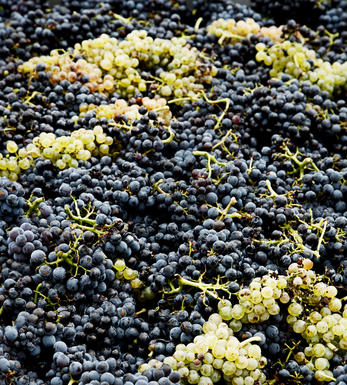
Aglianico
Aglianico's origins are Greek (the name is a dialect version of the word Ellenico, the Italian word for Hellenic) and its was originally planted in the Campania and Basilicata regions of southern Italy over 2,500 years ago when southern Italy was a Greek colony known as Magna Graecia or Oenotria.
The grapes thrived until the late 19th century when it was almost destroyed by phylloxera. Since the war plantings have gradually increased and there were about 13,000 ha/32,000 acres of Aglianico planted at the last official count, in 1990.
The grape seems to prefer soils of volcanic origin, as well as dry and sunny location, and achieves its finest results in the two DOCs of Taurasi in Campania and Aglianico del Vulture in Basilicata. It is an early budding, late ripening variety and in the right hands can produce very long-lived wines of intensity and finesse. In the past young Aglianico wines were often fiercely tannic and harsh - fortunately improved techniques in both the vineyard and winery have led to fresher and riper wine being made that are eminently approachable in youth but also still improve with bottle age.


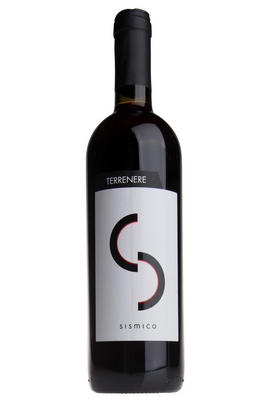
Buying options
Add to wishlist
Description
The Carbone family have been growing grapes in this region of southern Italy since 1974, but previously sold the grapes to other companies. It’s only since 2005 that Sara and Luca have been bottling their own wines. This is the south, but the warm climate is moderated by altitude, with the hot days followed by cool evenings.
The vines are grown in deep brown volcanic soils surrounding Mount Vulture, and they are lucky enough to be working with two excellent grape varieties: whites are made from Fiano and reds from Aglianico.
They have 10 hectares of Aglianico and Fiano planted in Melfi (most in the 1970s), and a further 8 hectares more recently planted with Aglianico and Moscato. Aglianico is a fabulous variety – the Nebbiolo of the south. It can be quite tannic and difficult, but when it’s handled properly produces complex, structured wines of real ageing potential and savoury appeal.
wineanorak.com
Sismico Aglianico is a monster of a wine. The bouquet is very distinctive with deep layers of tar, old spice and tobacco overlaid with spiced notes, dark plums and black cherry notes. Very persistent. On the palate, this sumptuous, lush Aglianico boasts an expansive, robust core of jammy blueberries, spices and oak. This exuberant wine will only get better in bottle , peaking in 2019, although it is irresistible today.
wine at a glance
Delivery and quality guarantee